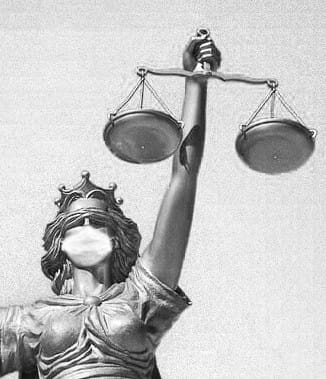Bloomington files answer to federal complaint by farmers market vendor, makes counter claim asking for judgment in city’s favor

In a filing made Monday with the federal district court, Bloomington has given its required paragraph-by-paragraph answer to a lawsuit filed against the city by Schooner Creek Farm (SCF), a vendor at the city’s farmers market last year.

SCF was also approved by the city to be a vendor at the market this year. The city sent SCF a letter saying SCF was accepted as a vendor and admonishing SCF about some violations last year.
With its Monday filling, Bloomington has also made counterclaims, and is asking for a judgment in its favor, based on the farmers market contract that SCF signed for last year’s (2019) season.
The contract includes a clause that the city is analyzing as prohibiting SCF from filing a lawsuit in this circumstance. The clause says that vendors “will not institute any action or suit at law or in equity against the City or the City’s agents or employees as a result of operations under this Agreement.”
A different clause in the 2019 contract forms the basis for a second counterclaim by the city. The clause requires vendors to indemnify the city of Bloomington.
It was in 2019 when protestors showed up at the market on several Saturdays to call for a boycott of SCF, after local activists pointed to evidence that SCF owners espoused white-supremacist views.
SCF filed its complaint on Feb. 14, 2020.
The arrests of protestors on two occasions last summer don’t get a mention in SCF’s complaint, which includes 101 numbered paragraphs.
One of SCF’s arguments is that the city did not enforce the market rules against the protesters in the same way it enforced rules against SCF, which is a constitutional equal protections issue.
SCF has made six separate claims under the U.S. Constitution: two involving free-speech, one under the free association clause, one under the equal protection clause, and two under the due process clause.
A seventh claim is made by SCF under Indiana’s state constitution, on free speech grounds.
A basic claim made by SCF is that the city’s market rules, which among others restrict political signs to specific areas of the market, are “not narrowly tailored to achieve a compelling government interest.” The “narrow tailoring” is a benchmark under established case law that restrictions on speech need to meet.
The factual claims that are in dispute bear in part on the question of whether the city enforced its market rules against SCF and the protestors in a uniform and content-neutral way. For example, SCF alleges that during mediation sessions, representatives of the city asked SCF owners to refrain from posting political signage in its vending space. In its answer, Bloomington denies that allegation.
The allegation that SCF was asked not to display political signage feeds into SCF’s argument that it was subject to an unconstitutional prior restraint of free speech.
The revised vendor contract for this year includes a new clause that effectively prohibits political signage in vendor stalls: “Vendors may only display signs, information and/or items at their stands that consist of the products they are selling or that are directly related to their business.”
So far this season, signs in vendor stalls are a moot point. That’s because there are no stalls at the Bloomington farmers market, except for the online ordering system the city has set up. Along with other vendors, SFC is selling its produce through the pick-up-only online ordering option that the city has adopted for the farmers market, in order to comply with strictures related to prevention of the COVID-19 virus.
The COVID-19 pandemic has also impacted the SCF litigation against the city.
In a filing made last Friday, SCF’s legal team, from the Indianapolis law firm of Orzeske and Blackwell, asked for a postponement of the pre-trial conference to May 1, which had originally been set for April 17. The reason for the postponement: Their lead attorney was diagnosed on March 30 with COVID-19, has been in quarantine since then, and has been unreachable.
Bloomington is being represented in the case by outside counsel, Stephenson Morow and Semler, also out of Indianapolis. The firm was engaged in the city’s defense by Travelers, which insures the city.




Comments ()